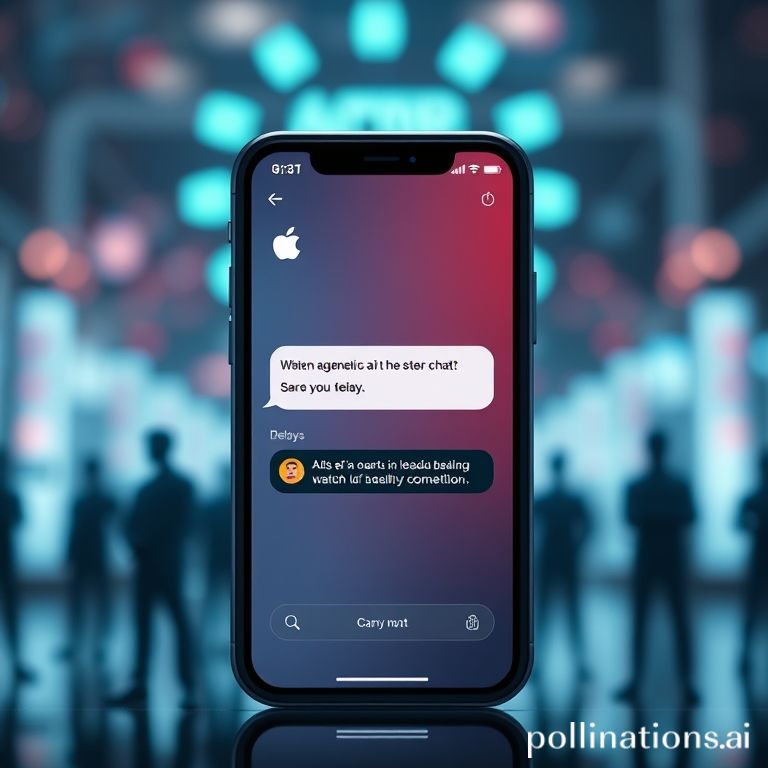
Apple is reportedly developing a ChatGPT-like iPhone application, codenamed "Veritas," Latin for "truth," designed to test and refine a significantly revamped version of its virtual assistant, Siri. While this internal testing represents a crucial step in Apple's journey into generative artificial intelligence, the app remains strictly for internal use by engineers and is not slated for a consumer release, at least for the foreseeable future, as reported by Bloomberg on Friday, September 26.
The Purpose of Project Veritas
This secretive application serves as a dedicated environment for Apple engineers to experiment with advanced Siri functionalities. Through Veritas, developers can test features such as seamlessly searching through emails, managing music libraries, and executing complex in-app tasks like photo editing. The primary goal is to provide Apple with a rapid and efficient method to iterate on and enhance Siri’s capabilities, moving beyond its current limitations. This focused internal development allows for rigorous testing and bug fixing before any potential public deployment, aligning with Apple's historical approach to product launches.
Trailing in the Generative AI Race
Despite these internal advancements, Apple's strategy highlights its perceived late entry into the burgeoning field of generative AI. While Apple engineers are deep in testing, competitors have already launched and scaled consumer-facing AI assistants. OpenAI’s ChatGPT has set a new standard for conversational AI, while Google’s Gemini powers a range of consumer products and services. Microsoft has aggressively integrated its Copilot AI, often powered by Anthropic models, across its Windows operating system and Office suite, bringing advanced AI tools directly to millions of users globally. These established products are actively collecting vast amounts of user data, enabling continuous learning and improvement at an unparalleled scale, a crucial advantage that Apple is currently missing by keeping its most ambitious AI endeavors in a sandbox phase.
Apple's Cautious Stance and Market Impact
Apple's conservative approach was notably evident during the iPhone 17 launch event. Executives primarily focused on hardware innovations, emphasizing chip performance upgrades and design enhancements. While AI features such as live translation in Messages and FaceTime, alongside visual recognition capabilities in Photos, were briefly mentioned, most of these had been previewed months earlier at Apple’s annual developer conference. This emphasis marked a distinct shift from the iPhone 16 debut, where AI played a more central role before subsequent deployment delays. This cautious stance raises concerns that Apple's prolonged testing phase could leave it significantly behind in shaping consumer expectations for AI. Previous reports, including a Bloomberg investigation, have already highlighted how Siri has lost considerable relevance compared to rival assistants. Analysts from Tokenist have even warned of a potential "Nokia moment" for Apple if it fails to deliver robust and competitive AI features to its users in a timely manner.
The Stakes of Delayed Deployment
The longer Apple keeps its most ambitious AI features confined to the testing stage, the greater the risk that competitors will firmly establish the benchmarks and set the standard for consumer-facing AI experiences. Rivals are not only innovating but also actively gathering critical user data from their widely deployed products, which fuels rapid iteration and refinement of their AI models. Apple's internal app, Veritas, undeniably signals the company's recognition of the high stakes involved in the generative AI race. However, by maintaining it in a prolonged testing phase while its rivals rapidly scale their offerings, Apple risks being perceived as too late to truly redefine Siri’s role and impact within this fiercely competitive landscape. Despite the lack of an immediate consumer rollout for the Veritas app itself, its very existence marks a significant new stage in Apple’s concerted effort to rebuild and re-strategize Siri. This revitalization is widely regarded as critical for altering public perceptions of Apple's overall AI strategy. After experiencing repeated delays, an upgraded version of Siri, featuring some of these enhanced capabilities, is now anticipated to launch as early as March, indicating a potential shift towards bringing some of these innovations to users.
